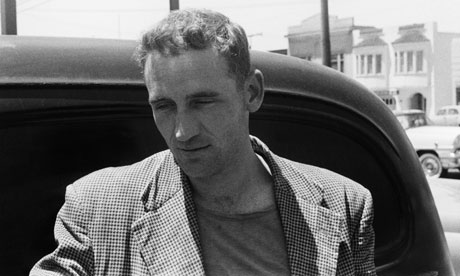My
high-school English teacher defined poetry as “crystallized thought.” As little
as I’ve thought about poetry in the intervening fifteen years, I have always considered
his definition to be a pretty decent one. It conjures up images of a weak,
watery solution, boiled down to its purest essence- everything evaporating away
except the poet’s most poignant pictures, thoughts and emotions.
And
as long as a poem isn’t completely abstract and incomprehensible, I’m okay with
nibbling these scattered bits and fragments, if they truly convey something meaningful.
Then again, sometimes I just like a poem to tell a story. Here’s one that does
just that. Hope you like it:
The Birthing
By
Deborah Digges
Call
out the names in the procession of the loved
Call
from the blood the ancestors here to bear witness
to
the day he stopped the car,
we,
on our way to a great banquet in his honor.
In
a field, a cow groaned, lowing, trying to give birth,
what
he called front leg presentation,
the
calf come out nose-first, one front leg dangling from his mother.
A
fatal sign, he said, while rolling up the sleeves
of
his dress shirt and climbed the fence.
I
watched him thrust his arms entire
into
the yet-to-be, where I imagined holy sparrows scattering
in
the hall of souls for his big mortal hands just to make way.
With
his whole weight he pushed the calf back in the mother
and
grasped the other leg tucked up like a closed wing
against
the new one’s shoulder
And
found a way in the warm dark to bring both legs out
into
the world together,
Then
heaved and pulled, the cow arching her back,
until
a bull calf, in whoosh of blood and water,
came
falling whole and still onto the meadow
We
rubbed his blackness, bloodying our hands
The
mother licked her newborn of us, oblivious
until
it moved a little, struggled.
I
ran to get our coats, mine a green velvet cloak,
And
his tuxedo jacket, and worked to rub the new one dry
while
he set out to find the farmer
When
it was over, the new calf suckling his mother,
leaving
our coats just where they lay
we
huddled in the car
And
then made love toward eternity
without
a word drove slowly home. And loved some more.
There are so many good lines in there, it's hard to choose highlights. (I transcribed this from YouTube, so hopefully I got the line breaks and punctuation right.) But what about the rest of you? What poems have punched you in the schnoz lately?




















